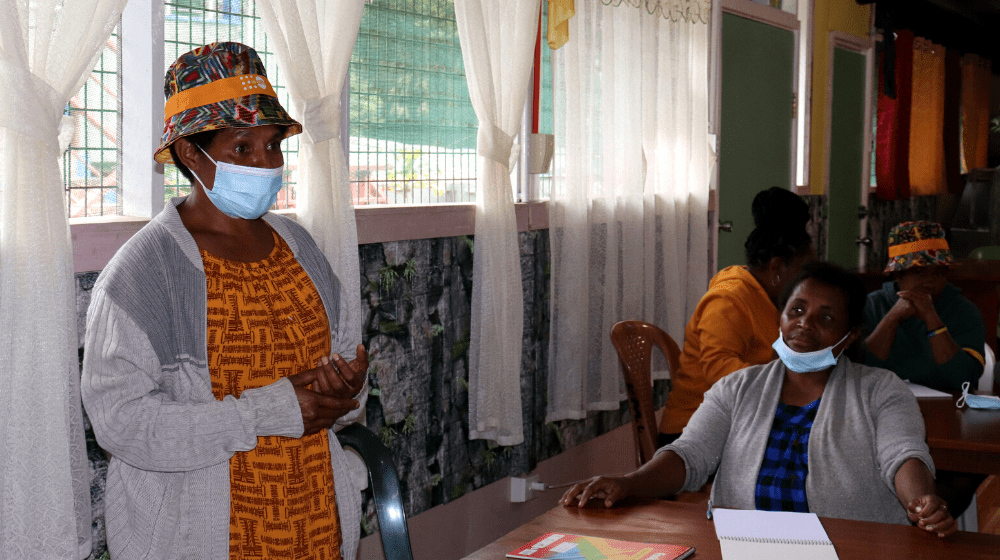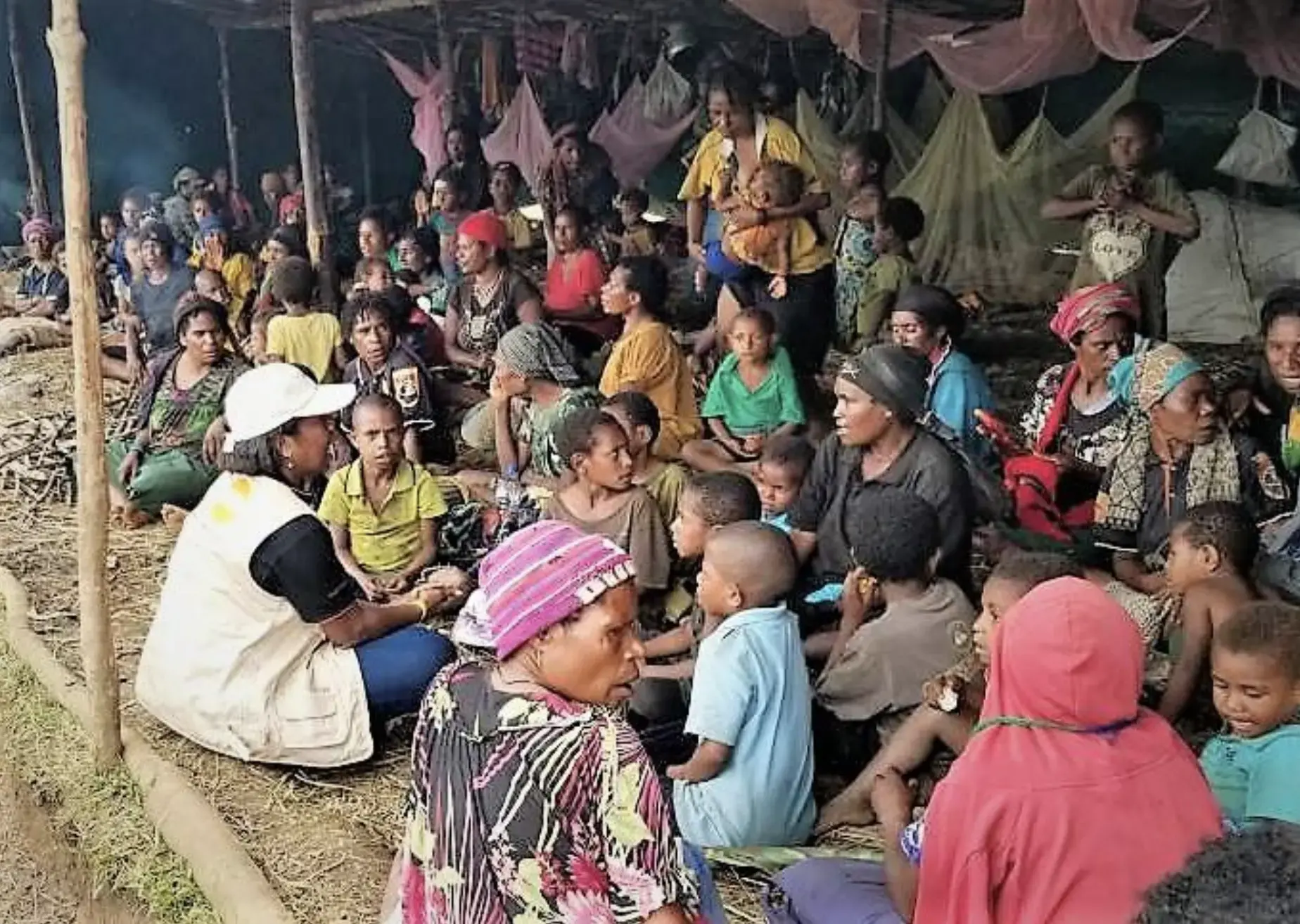“Being a community mobiliser is tough most times,” reflected Jenny Martin. “Especially in cases of gender-based violence it is tough because it is so easy for personal emotions to cloud judgements.”
“I forget about my own safety, or about hearing both sides of the story, and immediately take the side of the female survivor. I make judgements without considering that both parties need help, especially psychosocial support.”
The mother of three is a community mobiliser with the Komo Learning and Empowerment Center and a Public Officer with Komo Youths4Change. She has been counseling and helping women and youth in her area for the past two years.
Jenny was one of 23 community mobilisers who joined Mental Health and Psychosocial Support (MHPSS) training in Tari, Hela Province, facilitated by the United Nations Population Fund and UN Women Papua New Guinea. The project is part of the organisations’ peacebuilding efforts in the Highlands Region. The program aims to build the capacity of community workers to provide evidence-based counselling support. The skills learned through the training not only better equip these individuals to provide mental health support to survivors, but also help them better manage the stress and vicarious trauma they experience in their work.
Jenny expressed how there is a huge gap in the mental and psychosocial aspects of a person's wellbeing, and there is a huge need for this training for all community mobilisers and frontline service providers.
“This week has taught me a lot,” shared Jenny. “The most important learning has been Psychological First Aid and the four steps; Prepare, Look, Listen and Link. I especially have an appreciation for the importance of preparation because most times I do not take time to prepare myself or to take into consideration my safety.”
“Through this training, I now know that in order to help others, I must ensure my safety first then the safety of others.”
As a community mobiliser, Jenny shared that it is difficult to help survivors immediately, especially when their abusers demand for survivors to return to them and not seek help.
“When a situation gets difficult like this, I always try to identify if any one of the parties is showing more understanding and I talk to that person, listen to the situation, and redirect them to the Family Support Center in Komo,” she shared.
“The Psychological First Aid training has helped me recognise that the law is better than retaliation. It is better to link survivors and perpetrators to the right place and right people, rather than taking matters into one's own hands, which is what most often happens in my area.”
The Komo Learning and Empowerment Center has 28 mobilisers, including Jenny, and she plans to take the learnings from this training back to the team.
“My aim is to support my fellow community mobilisers so that we can work together to deal with the violence and attitude problem we see in our communities.”
UNFPA and UN Women will continue to expand training for mental health and psychosocial support in the Highlands Region to address the critical lack of professional support available in the Region.




